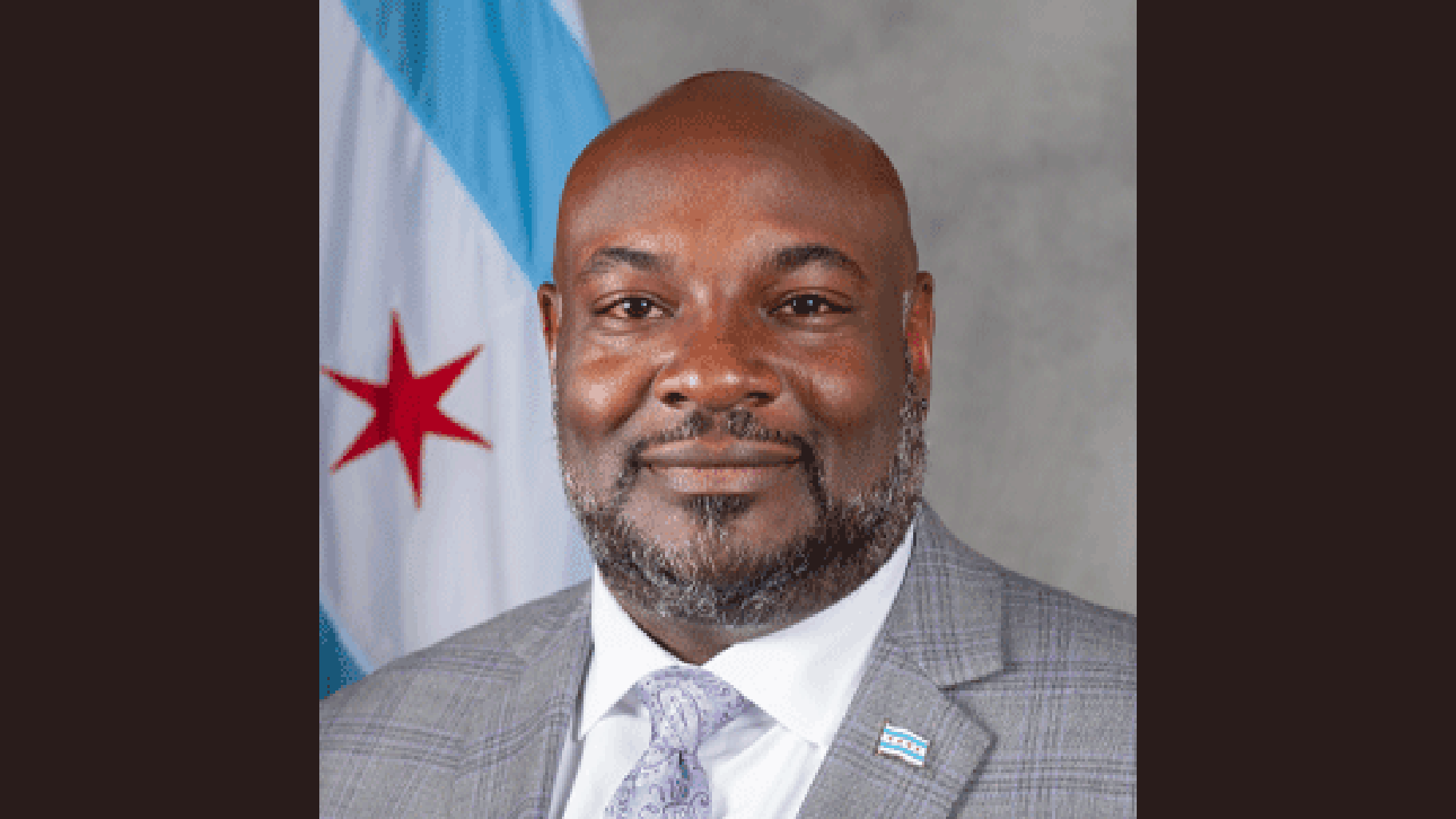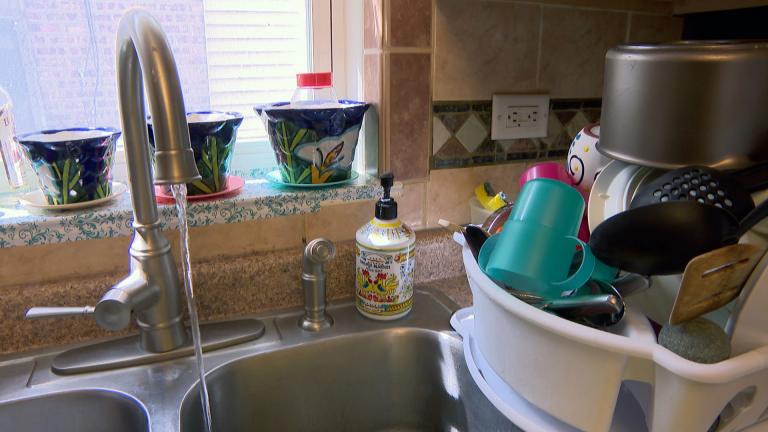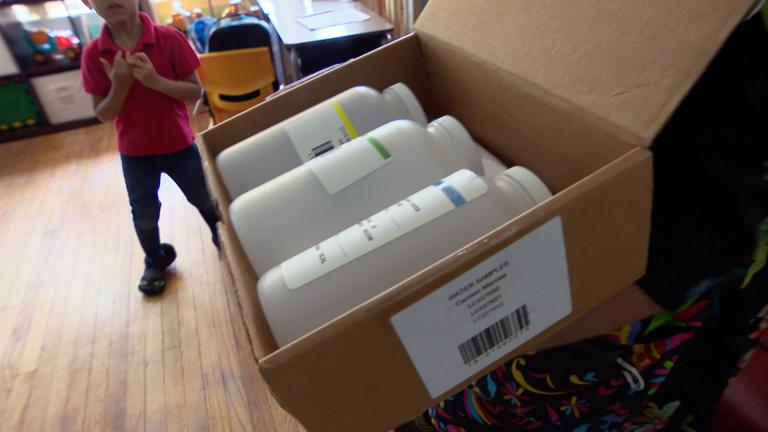 Randy Conner (Courtesy City of Chicago)
Randy Conner (Courtesy City of Chicago)
Mayor Brandon Johnson announced Friday that he would replace the official responsible for leading the city’s effort to replace approximately 400,000 lead service lines responsible for contaminating Chicagoans’ tap water with a City Hall veteran.
Randy Conner, who retired abruptly in December 2020 as the commissioner of the Department of Water Management, will return to lead that same department, which is charged with providing clean water to every home and business in Chicago and operating the city’s water purification plants, Johnson said.
Johnson praised Conner as a “proven leader and someone who knows the ins and outs of infrastructure and water management,” in a statement.
“There is nothing more foundational to our collective health than clean drinking water, and Randy brings the type of compassionate, collaborative and competent leadership that this city needs to manage our systems for safety and good health,” Johnson said.
Conner is likely to be swiftly confirmed by the Chicago City Council, whose members have known him for decades.
Conner served as the head of the Water Department for 3 1/2 years after being appointed by former Mayor Rahm Emanuel amid a furor caused by a determination by the city’s watchdog that the department was rife with “overtly racist and sexist behavior and attitudes.”
Conner stepped down after spending 25 years with the city, the majority in the Departments of Transportation and Streets and Sanitation, before maxing out his pension benefits. In an interview with WTTW News at the time, Conner offered no reason for his unexpected departure, except that he wanted “to get back to doing what Randy wants.”
Conner will now replace his replacement, Andrea Cheng, who joined the department in 2004 as a water research specialist and earned $195,700 per year as the Water Department commissioner. She was appointed by former Mayor Lori Lightfoot.
At the top of Conner’s to-do list when he returns to City Hall will be the expensive and complicated effort to replace all of Chicago’s lead service lines. Lightfoot began that process in 2020 but made little progress before leaving office.
By the end of 2022, city crews removed approximately 300 lead service lines, according to data provided to WTTW News by the Department of Water Management.
A state law that took effect in January 2023 requires city crews to replace all of the lead service lines connected to a water main that is being repaired — and to foot the bill, which is expected to cost between $15,000 to $26,000 per line.
In her last appearance before the City Council in October, Cheng said the city replaced 3,652 lead service lines and hoped to replace a total of 4,500 in 2023. Plans call for city crews to replace 8,000 lead service lines in 2024, Cheng said.
The city plans to pay for that work with a low-interest $336 million federal loan it received in November. In all, those funds will be used to replace up to 30,000 lead pipes that deliver water to homes across the city.
It will cost between $8 billion and $10 billion to remove every single lead service line in Chicago, according to cost estimates.
Lead service lines connect more Chicago homes to water mains than in any other American city, in large part because officials required that lead pipes be used to funnel water to single-family homes and small apartment buildings for nearly a century.
Federal law banned the use of lead pipes in 1986.
There is no safe level of lead in drinking water, according to federal officials. Lead is a neurotoxin and can be especially damaging to children and pregnant women.
Chicago has until 2077 to remove all of its lead service lines, under state law. A federal rule announced by President Joe Biden in November requiring all lead service lines to be replaced within a decade does not apply to cities, like Chicago, with more than 100,000 residents.
Conner was head of the Water Department in November 2018 when a study found that 17% of homes where crews installed water meters had levels of the brain-damaging chemical higher than the 15 parts per billion action level set by the Environmental Protection Agency.
Emanuel declined to stop the installation of the meters despite that finding, a policy Conner implemented.
Lightfoot reversed that decision in July 2019 after city officials found elevated levels of lead in more than one in five metered homes they tested — 13 months after officials first learned of the issue.
A 2013 study by EPA researchers linked the installation of meters and the replacement of water mains to high amounts of the heavy metal in drinking water, because lead pipes that are disturbed by street or plumbing work can release the material into the water supply.
Other Appointments Announced
Johnson announced his decision to bring back Conner to lead the Water Department as part of a larger effort to reshuffle his cabinet.
Johnson tapped Tom Carney to serve as permanent commissioner of the Chicago Department of Transportation after leading CDOT since the departure of Gia Biagi four months ago. Like Conner, Carney is a City Hall veteran who is well regarded by members of the City Council.
Carney knows how to “deliver effective and efficient services to residents and oversee the large-scale capital improvements our city needs,” Johnson said in a statement.
However, a statement from Better Streets Chicago, a group that urges city officials to prioritize efforts to make Chicago's streets safer for those who walk, bike or take public transportation to get around, said its leaders were disappointed with Carney's appointment.
"As traffic fatalities continue to rise, this moment demands a departure from the old way of doing things," according to the group's statement. "It is urgent for this role be filled, however we do not believe that the transformative leadership needed can currently be found within (CDOT)."
In addition, Sandra Blakemore will serve as the head of the city’s Department of Human Resources after serving as the head of the Department of Asset and Information Services, which is being disbanded. The city’s 2024 budget will reestablish the department of Fleet and Facility Management, known as 2FM, and create a separate department of Technology and Innovation. Johnson has not announced commissioners for either department.
Blakemore and Carney must also be confirmed by the City Council before serving in their new roles.
Johnson’s cabinet still has one major vacancy at the head of the Department of Housing. Former Commissioner Marisa Novara left the city to join the Chicago Community Trust in July.
Contact Heather Cherone: @HeatherCherone | (773) 569-1863 | [email protected]







